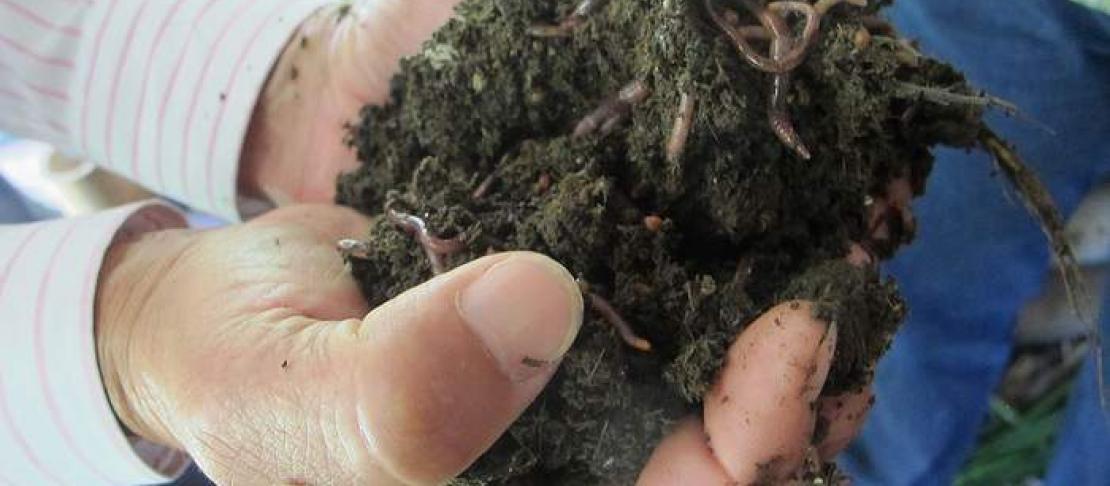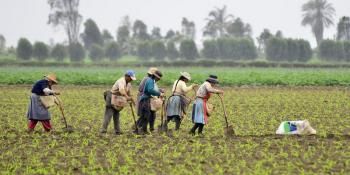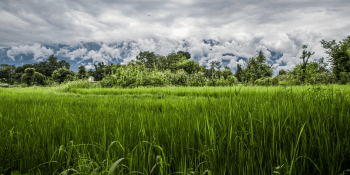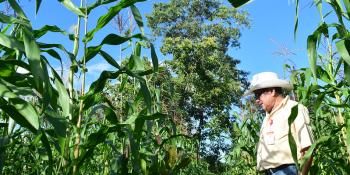Climate-smart agriculture: A worm's eye view

Although most visitors would probably prefer to see a fresh cup of coffee, the importance of the humble earthworm to the people of this region takes precedence over conventional hospitality.
Researchers from the CGIAR Research Program on Climate Change, Agriculture and Food Security (CCAFS) and the International Center for Tropical Agriculture (CIAT) recently spent time in Río Piedras, a watershed in Colombia’s Cauca department, to take a look at what farmers are doing to adapt their agricultural lifestyles to the challenges of a changing climate.
For those on the front lines of climate change, climate-smart practices such as vermi-composting can boost food security and adaptive capacity, while being mindful of mitigation goals.
COMPOST FOR THE CLIMATE
Putting aside the historical land tenure conflicts and cultural differences between indigenous and non-indigenous campesino farmers that have long characterised this region, everyone in Río Piedras agrees on the benefits their beloved biofábricas, or bio-factories, can bring. Consisting of two to three large wooden crates, a biofábrica houses thousands of industrious Californian worms (Eisenia foetida) that turn manure, crop residues and household waste into high-quality organic compost.
Read the full story by Mariola Acosta on the Thomson Reuters Foundation blog.
Related stories:
New field manual captures farmers' climate adaptation activities in Colombia
Using photos to illustrate gender-sensitive research in Colombia



